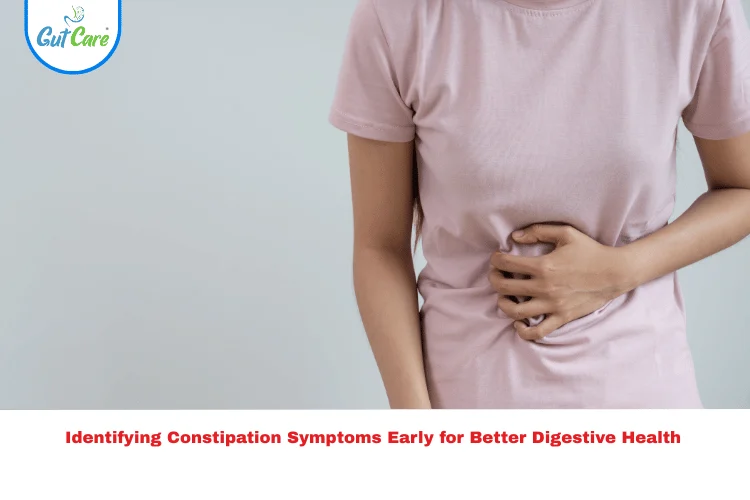Constipation in women is a common yet frustrating issue that many silently suffer from. At Gutcare Clinics in Bangalore, we understand how hormonal shifts can significantly impact digestive health. This blog dives deep into the hormonal causes of constipation, why it affects women more frequently, and what can be done for long-term relief.
If you’ve noticed irregular bowel movements during your menstrual cycle, pregnancy, or menopause, you’re not alone. Let’s explore how hormones affect bowel movements, and what solutions might work best for you.
Why Constipation in Women Is More Common
While both men and women can experience constipation, women are more susceptible due to fluctuating hormone levels throughout life stages such as:
- Menstruation
- Pregnancy
- Menopause
- Conditions like PCOS or thyroid disorders
Understanding the link between hormones and bowel movement is key to finding lasting relief.
Hormonal Causes of Constipation in Women
1. Constipation During Periods
Many women report constipation during periods. This is mainly due to rising levels of progesterone, which slows down intestinal muscle contractions. Less movement in the bowels means food passes more slowly, causing bloating and harder stools.
2. Progesterone Constipation
High levels of progesterone — especially during the luteal phase of your menstrual cycle and pregnancy — relax the smooth muscles of the gut. While this is a natural process, it can delay digestion and trigger hormonal imbalance constipation.
3. Constipation and Estrogen
Estrogen plays a complex role. While moderate levels help regulate bowel health, fluctuating estrogen during the cycle or menopause may lead to constipation in women. Estrogen imbalance can disrupt gut bacteria, slow motility, and reduce bile flow—all of which contribute to sluggish digestion.
4. PCOS and Constipation
Polycystic Ovary Syndrome (PCOS) can contribute to constipation in women through hormonal irregularities, insulin resistance, and inflammation. Many women with PCOS also experience bloating and irritable bowel syndrome (IBS), compounding constipation symptoms.
5. Menopause and Constipation
During menopause, estrogen and progesterone levels drop, leading to changes in gut function. Many postmenopausal women experience chronic constipation due to these shifts. Low hormone levels also reduce pelvic floor muscle tone, making bowel movements more difficult.
6. Thyroid and Constipation in Women
An underactive thyroid (hypothyroidism) can significantly slow down metabolism—including digestion. This is a major cause of constipation in women, particularly those in midlife. Symptoms include fatigue, dry skin, weight gain, and sluggish bowels.
Pregnancy Constipation Relief
Pregnancy is a beautiful journey but often comes with uncomfortable side effects like constipation. The combination of high progesterone, iron supplements, and pressure on the intestines from the growing uterus causes this.
Tips for Relief:
- Increase fiber intake (whole grains, fruits, and vegetables)
- Stay hydrated
- Gentle prenatal exercise
- Talk to your doctor about pregnancy-safe laxatives or stool softeners
Read more on Pregnancy and Digestive Health.
How Hormones Affect Bowel Movements
Hormones impact:
- Muscle contraction speed
- Water absorption in intestines
- Gut microbiome balance
- Digestive enzyme production
This is why hormonal imbalance constipation often comes with other symptoms like bloating, fatigue, or cramps.
When to See a Specialist
If you’ve tried diet changes, hydration, and over-the-counter remedies with little success, it may be time to consult a gastroenterologist. At Gutcare Clinics in Bangalore, our experts specialize in women’s gastrointestinal health and hormonal constipation.
You should seek medical advice if:
- Constipation lasts more than 3 weeks
- There’s blood in your stool
- You experience severe abdominal pain
- Bowel changes are accompanied by weight loss or fatigue
Summary: Key Takeaways
- Constipation in women is often linked to hormonal changes from menstruation, pregnancy, menopause, thyroid dysfunction, and PCOS.
- Key hormones like estrogen, progesterone, and thyroid hormones impact bowel health.
- Lifestyle adjustments can help, but persistent symptoms require professional evaluation.
- At Gutcare Clinics, Bangalore, we provide personalized digestive care for women dealing with hormonal constipation.
Frequently Asked Questions (FAQs)
1. Why are women more likely to experience constipation than men?
Women’s constipation is often driven by hormonal changes due to menstruation, pregnancy and menopause, which do not affect men.
2. Can hormone imbalance lead to constipation in females?
Yes, hormone imbalance constipation is real. Hormones including estrogen, progesterone and thyroid impact gut transit time and digestive muscle activity directly.
3. How does PCOS cause constipation?
PCOS and constipation can be related as hormonal imbalance causes insulin resistance and inflammation which can reduce digestion as well as cause bloating or irregular bowel movements.
4. What is good to help relieve pregnancy constipation?
Increase fiber, stay hydrated, do some light exercise. Always check with your doctor first before trying medication.
5. Why is Gutcare Clinics the best for women’s constipation treatment in Bangalore?
Gutcare Clinics offers, specializes and has extensive experience treating women’s constipation issues, especially triggered due to hormonal issues like thyroid related constipation or menopausal constipation and PCOS. We offer an expert team to ensure you receive holistic, individual care.




